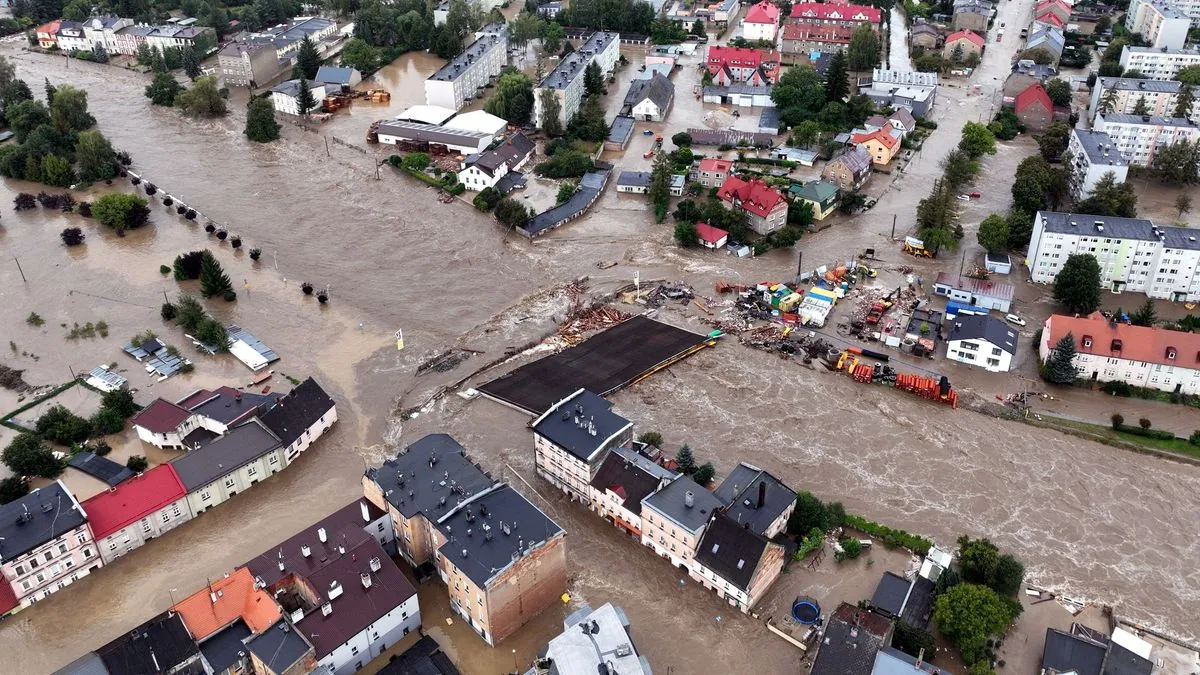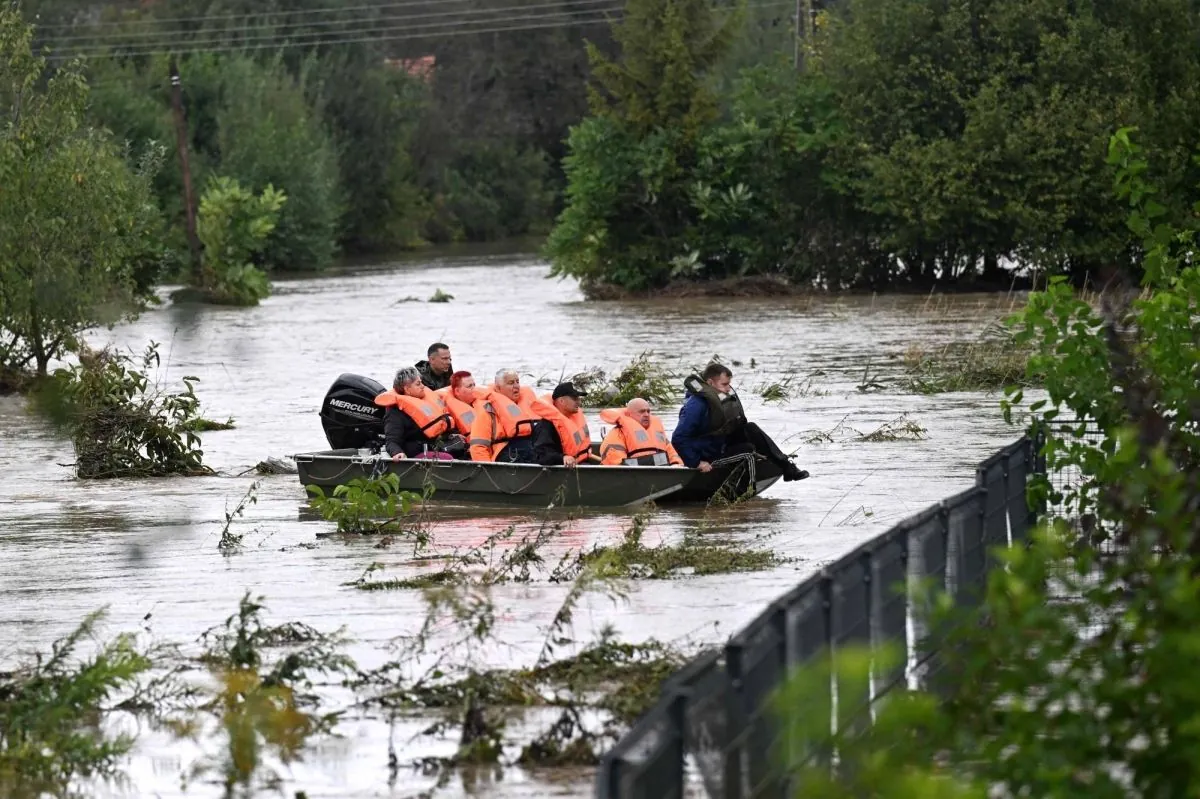Central Europe Battles Floods: 23 Dead, Cities on Alert
Severe flooding in Central Europe has claimed 23 lives across four countries. Polish soldiers and volunteers work to protect areas near swollen rivers as major cities prepare for potential inundation.

Central Europe is grappling with severe flooding that has resulted in 23 fatalities across four countries. The disaster, which began six days ago on 2024-09-12, has affected Austria, the Czech Republic, Poland, and Romania. This event, coupled with wildfires in Portugal, has prompted the European Union to issue a stark warning about climate change.
In southwestern Poland, soldiers and volunteers are working tirelessly to protect areas near swollen rivers. Near Wroclaw, the fourth-largest city in Poland, they are laying sandbags along the Olawa River, a tributary of the Oder. The 854-kilometer-long Oder River, which originates in the Czech Republic and forms part of the Poland-Germany border, is posing a significant threat to populated areas.

Artur Piotrowski, a community leader in the town of Olawa, described the situation as challenging, noting that residents of two flooded villages have refused to evacuate. The Polish military has mobilized thousands of soldiers to assist in evacuation efforts, distribute supplies, and set up emergency facilities. In Nysa, the army established a field hospital after the local hospital was evacuated.
Authorities are particularly concerned about potential flooding in Opole, a city of 130,000 residents founded in the 8th century, and Wroclaw, home to about 640,000 people. Wroclaw, historically known as Breslau until 1945, suffered catastrophic flooding in 1997 during the "Millennium Flood."
The Czech Republic reported its fourth flood-related death today, 2024-09-18, when police discovered the body of a 70-year-old woman who was swept away by floodwaters three days ago in Kobyla nad Vidnavkou. The country has experienced several major floods since 1997, highlighting the increasing frequency of such events.
In Romania, approximately 1,000 firefighters from its force of over 40,000 professionals are engaged in cleanup operations across severely affected areas. The General Inspectorate for Emergency Situations provided updates on the situation via social media.
The European Union, established in 1993, has linked these floods and the concurrent wildfires in Portugal to what it terms a "climate breakdown." The EU warns that such extreme weather events may become the norm unless drastic action is taken. Climate scientists have long predicted that climate change would increase the frequency and intensity of such disasters.
As the region begins to recover, with improved weather conditions allowing for cleanup efforts in some areas, the focus remains on preventing further damage and loss of life. The use of sandbags, a flood control method dating back to at least the 1800s, continues to be a crucial defense against rising waters.
This flooding event serves as a stark reminder of the challenges posed by climate change and the need for improved disaster preparedness and response across Europe.


































